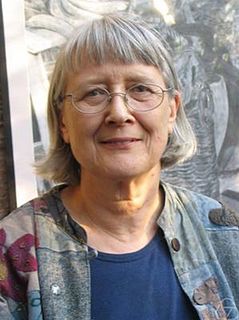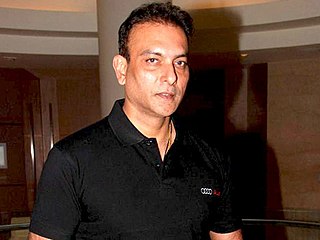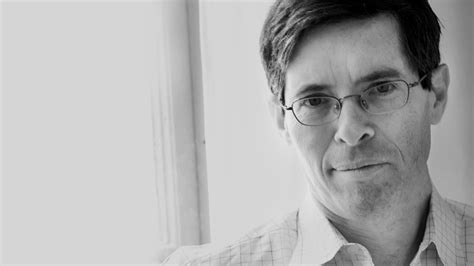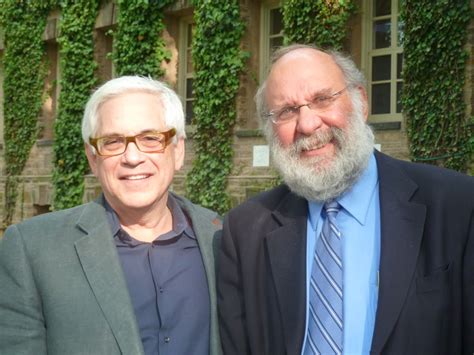Top 502 Straightforward Quotes & Sayings - Page 9
Explore popular Straightforward quotes.
Last updated on December 22, 2024.
I think self-portraits are very difficult. I’ve always seen mine as straightforward, very stripped down, hair pulled back. No shirt. Whatever light happened to be available. I’d want it to be very graphic – about darkness and light. No one else should be there, but I’m scared to do it by myself. I’ve been thinking about it for a long time. The whole idea of a self-portrait is strange. I’m so strongly linked to how I see through the camera that to get to the other side of it would be difficult. It would be as if I were taking a photograph in the dark.
Gel'fand amazed me by talking of mathematics as though it were poetry. He once said about a long paper bristling with formulas that it contained the vague beginnings of an idea which could only hint at and which he had never managed to bring out more clearly. I had always thought of mathematics as being much more straightforward: a formula is a formula, and an algebra is an algebra, but Gel'fand found hedgehogs lurking in the rows of his spectral sequences!
Becoming awarrior and facing yourself is a question of honesty rather than condemning yourself. By looking at yourself, you may find that you've been a bad boy or girl, and you may feel terrible about yourself. Your existence may feel wretched, completely pitch-black, like the black hole of Calcutta. Or you may see something good about yourself. The idea is simply to face the facts. Honesty plays a very important part. Just see the simple, straightforward truth about yourself.
Sourav's greatest asset is his ability to communicate. He is a naturally very confident person. He encourages his team, is a great motivator and a born captain. He is not the media's blue eyed boy because he is a very straightforward person, who never minces his words, instead he talks in a no nonsense manner to the press. He shares an extremely healthy rapport with his teammates. His leadership skills are also vouched for by the youngsters in the team. He has phenomenal brand value. He's the new-age Indian, an aggressive go-getter, full of self-belief, determination.
Buffett's methodology was straightforward, and in that sense 'simple.' It was not simple in the sense of being easy to execute. Valuing companies such as Coca-Cola took a wisdom forged by years of experience; even then, there was a highly subjective element. A Berkshire stockholder once complained that there were no more franchises like Coca-Cola left. Munger tartly rebuked him. 'Why should it be easy to do something that, if done well two or three times, will make your family rich for life?
And I found Jesus very disturbing, very straightforward. He wasn't diplomatic, and yet I felt like if I met Him, He would really like me. Don, I can't explain how freeing that was, to realize that if I met Jesus, He would like me. I never felt like that about some of the Christians on the radio. I always thought if I met those people they would yell at me. But it wasn't like that with Jesus.
You said a bad driver was only safe until she met another bad driver? Well, I met another bad driver, didn't I? I mean it was careless of me to makes such a wrong guess. I thought you were rather an honest, straightforward person I thought it was your secret pride." "I'm thirty," I said. "I'm five years too old to lie to myself and call it honor." She didn't answer. Angry, and half in love with her, and tremendously sorry, I turned away.
People just didn't write songs that were so directly emotional in those days. They still don't. Part of Hank's [Williams] thing was that he was opening up about relationships between men and women in ways that nobody else did, and I think that's something that made him stand out so much. His songs are just so straightforward about these really deep feelings that are universal, but they're so hard to write about without sounding sappy or over the top. You think of men in that era - they didn't express themselves that way.
How a designer gets from thought to thing is, at least in broad strokes, straightforward: (1) A designer conceives a purpose. (2) To accomplish that purpose, the designer forms a plan. (3) To execute the plan, the designer specifies building materials and assembly instructions. (4) Finally, the designer or some surrogate applies the assembly instructions to the building materials. What emerges is a designed object, and the designer is successful to the degree that the object fulfills the designer's purpose.
This morning arrives a letter from my ancient silver-mining comrade, Calvin H. Higbie, a man whom I have not seen nor had communication with for forty-four years. . . . [Footnote: Roughing It is dedicated to Higbie.] . . . I shall allow myself the privilege of copying his punctuation and his spelling, for to me they are a part of the man. He is as honest as the day is long. He is utterly simple-minded and straightforward, and his spelling and his punctuation are as simple and honest as he is himself. He makes no apology for them, and no apology is needed.
Our understanding of early Christian beginnings is usually monolithic. It is much determined by the Acts of the Apostles, which pictures a straightforward development from the primitive community in Jerusalem founded on Pentecost to the world-wide mission of Paul climaxing with his arrival in Rome, the political centre of the Greco-Roman world. The Pauline epistles are understood not so much as historical sources reflecting a much more multifaceted early Christian situation fraught with tensions but as theological treatises expounding and defending the doctrine of justification by faith.
A system in which legal police shootings of unarmed civilians are a common occurrence is a system that has some serious flaws. In this case, the drawback is a straightforward consequence of America's approach to firearms. A well-armed citizenry required an even-better-armed constabulary. Widespread gun ownership creates a systematic climate of fear on the part of the police. The result is a quantity of police shootings that, regardless of the facts of any particular case, is just staggeringly high. Young black men, in particular, are paying the price for America's gun culture.
This is a major, wide-ranging, and comprehensive book. A philosophical investigation that is also a literary and historical study, Truth and Truthfulness asks how and why we have come to think of accuracy, sincerity, and authenticity as virtues. Bernard Williams' account of their emergence is as detailed and imaginative as his defense of their importance is spirited and provocative. Williams asks hard questions, and gives them straightforward and controversial answers. His book does not simply describe and advocate these virtues of truthfulness; it manifests them.
Like a cross between Paul Auster's The Book of Illusions and Janice Lee's Damnation, The Absolution of Roberto Acestes Laing is at once smart and slyly unsettling. It is expert at creating a quietly building sense of dread while claiming to do something as straightforward as describe lost films—like those conversations you have in which you realize only too late that what you actually talking about and what you think you are talking about are not the same thing at all. With Rombes, Two Dollar Radio deftly demonstrates why it is rapidly becoming the go-to press for innovative fiction.
I'm straightforward with my kids, I take my kids out and I bring my daughter to dance lessons. I'm teaching my son how to ski, and my wife supports them and my wife has some issues. What, you just dismiss them? You just walk away? I don't walk away from anyone, Bill, in life! I'm sitting here and support people that are down and out! All these rich and elitist people, I'm sick of them! I'm sick of them! No, they're perfect. They don't do nothing! Get outta here! 'They don't do nothing!' They're the biggest crooks around!
If a country is governed with tolerance, the people are comfortable and honest. If a country is governed with repression, the people are depressed and crafty. When the will to power is in charge, the higher the ideals, the lower the results. Try to make people happy, and you lay the groundwork for misery. Try to make people moral, and you lay the groundwork for vice. Thus the Master is content to serve as an example and not to impose her will. She is pointed, but doesn't pierce. Straightforward, but supple. Radiant, but easy on the eyes.
Even those who identify themselves as libertarians follow an overtly anti-rationalist philosophy, as even a brief acquaintance with the work of Friedrich Hayek should make clear. The argument against reason in this literature is straightforward: it is impossible for any individual to acquire enough reliable information to make a rational decision, any actions founded on rational thought will therefore be delusional, any attempts at reason should therefore regarded as dangerous, and all action should instead be guided by tradition.
It's Nathaniel Hawthorne Month in English. Poor Nathaniel. Does he know what they've done to him? We're reading The Scarlet Letter one sentence at a time, tearing it up and chewing on its bones. It's all about SYMBOLISM, says Hairwoman. Every word chosen by Nathaniel, every comma, every paragraph break -- these were all done on purpose. To get a decent grade in her class, we have to figure out what he was really trying to say. Why couldn't he just say what he meant? Would they pin scarlet letters on his chest? B for blunt, S for straightforward?
I believe I live in a black and white. I think things are like either black or white. I don't really believe that much in the gray. I think that there's gray for a lot of people, but I don't live in the gray. I realize whatever action I have or take, it's going to have a consequence -- either good or bad. So I live my life in a way where I don't have bad consequences. I just notice there's a lot people around me just live in the gray. I don't know, for me, I'm just really straightforward.
Today the human race is a single twig on the tree of life, a single species on a single planet. Our condition can thus only be described as extremely fragile, endangered by forces of nature currently beyond our control, our own mistakes, and other branches of the wildly blossoming tree itself. Looked at this way, we can then pose the question of the future of humanity on Earth, in the solar system, and in the galaxy from the standpoint of both evolutionary biology and human nature. The conclusion is straightforward: Our choice is to grow, branch, spread and develop, or stagnate and die.
Artists talk about art in sort of straightforward terms, more like the way you talk about plumbing fixtures. Does it function well? Does it bring the hot water up from the cellar efficiently, or does it lose too much thermodynamic energy in the process? Artists are also very ruthless with each other and can be very brutal in evaluating each other's work because their criteria is almost more mechanistic. Does it do what it's supposed to be doing in an efficient way? That doesn't mean that intention is not part of the conversation, but it's not the foreground.





















